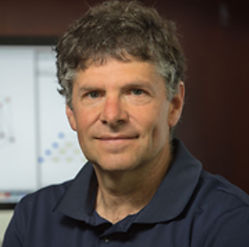
Société
mathématique
du Canada

Michael Gekhtman

Harvard Kennedy School et University of Arizona
Deborah Hughes Hallett est une professeure de mathématiques à l’Université d’Arizona et une professeure adjointe de politique publique au Harvard Kennedy School. Avec Andrew M. Gleason à Harvard, elle a organisé le Calculus Consortium basé à Harvard, ce qui a réuni des professeurs d’une grande variété d’écoles pour travailler sur des questions relatives aux programmes d’études de premier cycle. Elle est régulièrement consultée sur la conception de programmes d’études et de pédagogie pour les mathématiques de premier cycle au niveaux nationale et internationale et elle est également l’auteure de plusieurs textes mathématiques de niveau universitaire. En 1998, 2002 et en 2006, elle a co-présidé la Conférence internationale sur l’enseignement des mathématiques en Grèce et en Turquie, à laquelle des facultés provenant d’environ 50 pays y ont assisté. Elle a également conçu des cours au Brunei, en Colombie et au Niger. Elle a été récompensée du prix Louise Hay et a été élue comme membre du « American Association for the Advancement of Science » pour ses contributions à l’enseignement des mathématiques. Son travail a été récompensé par des prix décernés par Harvard, du University of Arizona, ainsi que par le prix national MMA Award for Distinguished Teaching et le prix AMS Award for Impact on the Teaching and Learning of Mathematics en 2022.
Exploiter la curiosité des élèves d'aujourd'hui—Les décideurs de demain
Le dimanche 4 juin, 2023 | 11h00 - 12h00
Cluster algebras were discovered by S. Fomin and A. Zelevinsky just over twenty years ago. They quickly found applications in various fields of mathematics and mathematical physics, including representation theory, combinatorics, higher Teichmüller theory, integrable systems and mirror symmetry. Generators of a cluster algebra are subdivided into overlapping subsets (clusters) of the same cardinality subject to certain polynomial relations (exchange relations). These are reminiscent of identities of classical mathematics - Ptolemy’s identity, short Plücker relations, Desnanot-Jacobi determinantal identities etc. In fact, all the aforementioned identities and their generalizations were instrumental in constructing cluster structures in rings of regular functions on many varieties of interest in Lie theory. It turns out, however, that the structure of exchange relations postulated in the original definition of a cluster algebra is sometimes too restrictive to include some natural and important geometric examples. The notion of a generalized cluster transformation allows one treat such examples while retaining key features of cluster algebras, such as the Laurent phenomenon.
I will discuss the definition and properties of generalized cluster transformations and examples of their occurrence in various contexts: surfaces with orbifold points, Poisson-Lie groups, periodic difference operators, cyclic symmetry loci in Grassmannians , and representations of quantum affine algebras at roots of unity.
Most of the talk is based on joint projects with M. Shapiro, A. Vainshtein, C. Fraser, K. Trampel and D. Voloshyn.